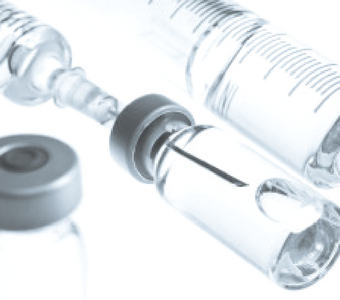ArQule (NASDAQ:ARQL) has enrolled the first patient in its Phase I trial of the FGFR Inhibitor ARQ-087, the last of five oncology products that the company has moved into the clinic. The company’s lead candidate, a C-Met Inhibitor called tivantinib, is set to enter a Phase III trial in the next few months as a possible treatment for Hepatocellular Carcinoma (HCC), a common cancer of the liver. Tivantinib is also in a Phase II trial as a treatment for Colorectal Cancer (CRC), which should report top-line data before 2013. Shares of ArQule tumbled 76% from their highs earlier this year, as tivantinib proved ineffective in treating non small-cell lung cancer (NSCLC) in a pivotal Phase III trial, although safety was not an issue, and pursuit of the NSCLC indication was discontinued. Since it’s severe sell-off, ArQule presents an opportunity to own a financially sound mid-stage oncology company with a diverse pipeline. ARQL’s $2.90 share price is supported by approximately $2.10 per share in cash, and investor expectations are largely pinned to tivantinib’s HCC indication, offering a free look at Phase II CRC data by the end of the year. ArQule’s four early-stage compounds are largely overlooked by investors, also offering cheap additional upside as the products move through the clinic. And, the upcoming Phase III HCC trial is being carried out under a Special Protocol Assessment from the FDA, offering confidence in the trial design.
The company’s capital position and numerous product candidates provide a backstop and retain potential for long-term investors, even if ArQule’s lead candidate tivantinib proves a flop in the long run. By year’s end, ArQule expects to have between $127M and $130M in cash and equivalents, and will likely have burned less than $38M in 2012. The company can easily operate for another two years without raising capital, suggesting little risk of a financing in the near term. And at a market capitalization of $185M, downside is substantially limited by the company’s cash position. The market, then, attributes $50M to the company’s “technology value”, a low expectation for five products, including a pre-Phase III product that already demonstrated its safety and tolerability in a previous Phase III study. We also note that the upcoming Phase III HCC trial is being carried out under a Special Protocol Assessment from the FDA. The agency has essentially agreed that the design of the trial is sufficient to satisfy its requirements should the study prove successful. While this is no guarantee of approval, the SPA suggests that primary endpoints in the trial are an acceptable standard for regulatory review.
The company’s pipeline is a diverse mix of mechanisms for oncology treatment, all of which have entered the clinic as of Thursday’s announcement. Aside from tivantinib, which is a C-Met inhibitor, ArQule develops an Eg5 Inhibitor, a BRAF Inhibitor, an FGFR Inhibitor, and an AKT Inhibitor. Cancer researchers have already demonstrated that these mechanisms hold clinical promise, and we see the pipeline, which is largely excluded from ARQL’s valuation, as a chance at a multitude of potential cancer treatments; as with investing, diversification is everything. And with such low expectations already baked into the stock, we see the Phase II second-line CRC trial, due to release results before the end of the year, as a “free look” at mid-stage data.
Daiichi Sankyo (OTC:DSNKY), an $11B Japanese drug maker, funds half of all Phase II and III tivantinib trials, substantially offsetting development costs for ArQule. And even following tivantinib’s failure in NSCLC, Daichi has remained committed. The Japanese company also signed up for a collaboration in developing ARQ 092, an AKT Inhibitor in its first Phase I trial. The partnership agreements for these products grant Daiichi worldwide commercialization rights, excluding much of Asia, and allows for milestone payments and a double digit royalty stream to ArQule. Since our coverage in early November, when we first suggested that investors could get a free peek at Phase II CRC data, the stock has gained 20%, and we remain interested in ArQule for its long-term prospects. Major catalysts, aside from the Phase II readout and Phase III initiation, will be sparse for the next year, so investors should consider ARQL a long-term potential. Again, we see opportunity in ARQL based on the company’s cheap valuation and low expectations from the market. Downside is limited by cash and equivalents, and the company has a solid balance sheet that should take its pipeline through two years of development.



